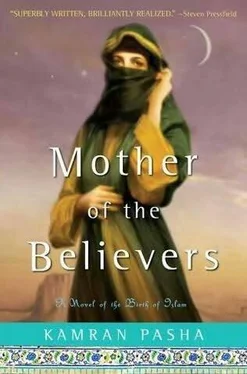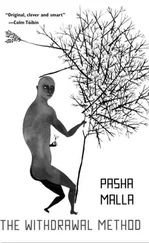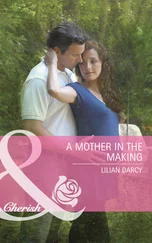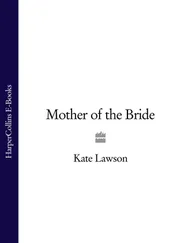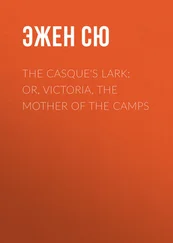We were in what had once been Muhammad’s grand guest room, where the family would entertain friends and visiting dignitaries from the trading caravans. The room was vast, at least to my young eyes, forty feet wide and twenty-five in length. Sturdy pillars supported a row of rounded arches that buttressed a circular balcony from the living quarters above. The roof soared thirty feet above my head and was not flat in the ordinary custom of the city but curved upward to form a majestic dome. An architectural style adopted from the Byzantines with whom the Messenger had had much interaction as a merchant in his youth. It would be a motif that would become commonplace among our people in years to come when the lands of the Greeks fell to our swords.
But as I sat there in a clandestine meeting with a handful of believers, such a mighty destiny would have seemed laughable, a fantasy unworthy of even the most foolish drunk sleeping in the gutters of Mecca. Who could entertain thoughts of empire when our movement was pathetically small and now appeared ripe for extinction? Abu Jahl had been right when he said that Sumaya’s death would not be the last. The dread of what was to come hung over us like a cloud of locusts, gathering in preparation for an unstoppable swarm.
But when the Messenger of God entered the room, for a moment a ray of light broke through those dark clouds and we felt hope again,
How can I describe to those who were not there what it was like to be in the presence of the Prophet? It was as if I had entered another world or was seeing this world through reborn eyes. In the years that followed, I would share his life and his bed, and yet every time I saw him, my heart would beat faster. It was as if he were life itself.
You will remember him, my nephew, from your own youth. Yes, by then he had changed some, there were a few gray hairs in his beard, caused by the burden of war and politics that would preoccupy his final years. But he was naturally ageless, and as I sat looking at him that night, I marveled to think that he was two years older than my father and yet looked a dozen years younger.
Muhammad, may God’s peace and blessings be upon him, was middling in height, but his wide shoulders and barrel chest exuded power and strength. His hair in those days was ebony black, darker than the veil of night, darker than the deepest levels of sleep when even our dreams vanish and only silence remains. His skin was white like alabaster. As I became older and more aware of my own beauty, I prided myself on the fairness of my skin, a rarity in our sunburned land. But the Messenger of God’s face was still fairer than mine, almost ethereal, like the sparkling white of the moon.
His hair was not straight but curled gently, flowing like a lion’s mane from his forehead down below his ears. His beard curled similarly and was thick and always well brushed. I often wondered at some of the believers who claimed to imitate him by donning beards and then let them grow wild like the quills of a porcupine. The Messenger of God would never be seen looking like a mangy dog dragged in from the desert, although there are many who style themselves worse and proclaim themselves followers of his way, his sunna. He was a man of dignity who loved beauty and grace and exhibited these qualities in the way he groomed himself.
But the most striking thing about the Prophet was his eyes, so black that it was difficult to discern his pupils and yet always filled with light. Few men could gaze deep into them for long. It is said that the eyes are the mirrors of the soul. In the case of the Messenger, his eyes were the mirrors of our souls. Anyone who looked into those majestic obsidian orbs would see the depths of his own heart reflected back. And not everyone could bear what he saw.
The Messenger smiled often but rarely laughed, although in later years I was one of the few who could make him throw his head back and rejoice with hearty abandon. His laugh, uncommon as it was, was deep-throated and infectious. And when he laughed, few could resist joining in.
The same was true for his tears, which came more often. And tonight he had shed many. After Hamza had returned and told him of Sumaya and Yasir’s fate, the Messenger had wept deeply. Together they had led a small band of believers into the wilderness, where they had rescued Ammar, still sitting forlorn by his dead parents, and then buried the first martyrs of Islam.
The Messenger had returned with a heavy heart and had found comfort, as he always did, in the arms of his wife, Khadija. I looked at her now as she sat next to him on the marble floor of the palatial house that she had owned before she met and fell in love with the young Muhammad. Together they looked like king and queen, except that they had no thrones. Most of the luxurious furnishings in the house had long ago been sold, the proceeds given to the poor, and the beautiful mansion with its whitewashed walls and polished floors was almost as empty as a tomb.
The Prophet squeezed Khadija’s hand and she smiled at him encouragingly. Looking at them, it was clear that there was a substantial age difference. Muhammad had only been twenty-five when she hired him to manage her trading caravans. Rumor had it that Khadija was a wealthy widow of forty years when she first saw him and that she had been so taken aback by his nobility and generous spirit-and his handsome features-that she had proposed shortly after he had returned from Syria with a substantial profit for her account. Others said she was only twenty-eight, just three years older than him, when she made him her husband, and that her age had been exaggerated by the pious in order to signify her wisdom.
I think the truth is somewhere in between. When I looked at her, she was still beautiful, but her dark hair had turned to silver, although there were only a few lines around her eyes and mouth. She had borne him six children in the first ten years of their marriage-four girls who had lived and two boys who had died as infants. As a woman, I find it hard to believe that Khadija would have been so fertile at an age when most other women’s courses had long ceased. But, after living with the Messenger of God myself, I have seen many strange and improbable things, so perhaps the rumors of her advanced age may indeed have been true. And it was certainly the will of God that she alone would bear him children that would survive, while my womb, young and fertile as it was, would remain inexplicably barren.
The Messenger looked at Khadija for a long moment, before turning to those he had gathered in council.
“Today has been a sad day for the believers,” he began softly, when Hamza, who had been pacing back and forth with barely restrained fury spoke up.
“They have crossed all boundaries!” the Prophet’s uncle said, his face racked with emotion.
My father stirred next to me.
“This day was long coming,” Abu Bakr said, trying to calm the agitated giant. “Sumaya and her family did not have the protection of the tribes. Abu Jahl knew he could act without fear of retaliation.”
Hamza sat down, growling like an angry lion.
“Now that they have tasted Muslim blood, they will hunger for more.”
Across the room I saw Talha, whose face was bandaged and right arm was cast in a sling of leather, lean toward the man who had belatedly appeared to rescue him.
“So what do you counsel?
Hamza looked across the room at the Messenger.
“Emigrate! We must send the rest of our people to Abyssinia,” he said forcefully.
There was a murmur of assent among the believers. A year before, several of the poorest Muslims had emigrated with the Prophet’s blessing across the western sea to the African nation of Abyssinia. The land was ruled by a wise Christian king called the Negus, who had taken the refugees in and offered them protection. The Meccans had sent Amr ibn al-As, one of their most charming and diplomatic envoys, to the Negus with gold and promises of discounted trade for his people-if he surrendered the Muslims, whom Amr branded as criminals. The Negus had been impressed by the faith and devotion of these Arabs to the God of Abraham and had denied the request. His clemency came despite the grumblings of his Christian priests, who saw the Muslims as troublesome heretics who denied that the prophet Jesus had ever claimed to be divine. The Muslims had been safe for the past year, and Hamza’s suggestion was well received by the believers.
Читать дальше
